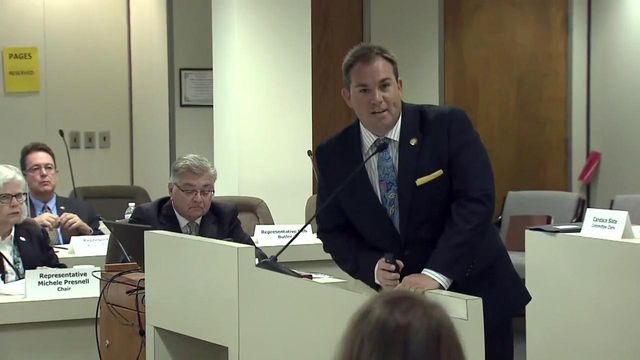Bill aims to make ride-sharing safer in NC
A bill requiring more signage on ride-sharing service vehicles and creating a crime for impersonating a ride-share driver easily cleared a House committee on Tuesday.
Posted — UpdatedSponsor Rep. John Bell, R-Wayne, called the ability for anyone to say they're a ride-share driver and pick up passengers a "public safety issue" that needed to be addressed.
"For years growing up, we were told not to get in a car with strangers. Yet now, we’re getting in the car with strangers," Bell said.
Under the proposal, a driver for Uber, Lyft or other service would have to display his or her license plate number in the windshield of the vehicle so passengers could easily see it and match it to what they see displayed in the service's app. Bell noted that North Carolina doesn't require front license plates and said he doubts people who have called for a ride consistently walk around the back of a vehicle to check the plate number before climbing in.
"I know, in some of their larger markets the ride-share companies have, they already use this technology," Bell said. "It's being tested, and so we want to make sure we get it right here in North Carolina."
Other issues still under discussion include requiring ride-service companies to notify the state Division of Motor Vehicles within 10 days after someone is terminated as a driver and setting penalties for not displaying license plates in the front.
Lobbyists for both Uber and Lyft were at the House Transportation committee meeting and didn't express opposition to the bill. But Uber issued a statement afterward saying it has some concerns about the proposal.
The bill also would create a Class 2 misdemeanor for impersonating a ride-share driver simply to make money. But the crime would escalate to a Class H felony if the impersonation was done with the intent to rob or assault passengers.
"There's a difference between someone taking advantage of the system and someone trying to target a victim," Bell told members of the House Transportation committee.
"You can’t stop bad people from doing bad things," he said after the meeting, but he wants the state to have "a tough law on the other side of that, that if they do this and intentionally start targeting people, that they’re going to jail for a very long time."
The bill also would allocate $100,000 for the University of North Carolina system to develop a public education campaign targeting college-age students about ride-share safety.
The bill passed the committee unanimously but must go through two more committees before getting to the House floor.
Related Topics
• Credits
Copyright 2024 by Capitol Broadcasting Company. All rights reserved. This material may not be published, broadcast, rewritten or redistributed.





